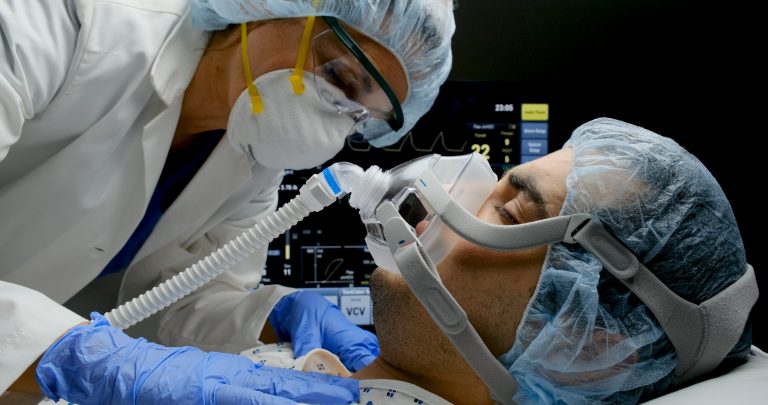
A small study carried out at the University of Miami suggests that mesenchymal stem cells can be safely used to treat the acute respiratory symptoms seen in some severe COVID-19 patients.
Although the main purpose of the study was to assess safety, the researchers also found that the treatment significantly improved survival with 91% of the stem-cell treated patients surviving until 31 days after admission versus 42% of the control group.
The potential for stem cells to treat COVID-19 related acute respiratory distress syndrome (ARDS) was recognized early in the pandemic, with companies such as US-based Athersys and Israeli biotech Pluristem Therapeutics adapting their therapies for this purpose. However, as these treatments are new, there is demand for more data supporting both safety and efficacy of these cutting-edge therapeutics for treatment of COVID-19 symptoms.
Camillo Ricordi, M.D., is a professor at the University of Miami Miller School of Medicine and was the lead researcher on this randomized controlled study. “It’s like smart bomb technology in the lungs to restore normal immune response and reverse life-threatening complications,” he emphasized.
Overall, 24 patients with COVID-19 related ARDS who were admitted to the University of Miami Tower or Jackson Memorial Hospitals were enrolled in the study between the end of April and the end of July 2020. The treatment group received an infusion of umbilical-cord derived mesenchymal stem cells on admission and on day 3 of hospitalization, whereas the control group had an infusion of a placebo treatment at the same times.
“It was a double-blind study. Neither doctors nor patients knew who received the treatment, who got the placebo,” explained Ricordi.
The umbilical cords were donated by women undergoing caesarean sections to give birth. One umbilical cord allows up to 10,000 doses of the stem cell treatment to be produced, according to the researchers.
Overall, there were 2 serious adverse events in the treatment group and 8 in the control group. As outlined in the journal Stem Cells Translational Medicine, the primary endpoint of the study assessed the number of prespecified infusion-related adverse events in each group. There was one such event in each group, showing that no increased risk for such events was seen in the stem-cell treated patients.
A secondary goal of the study was to see how effective the treatment with stem cells was at improving survival and decreasing overall treatment times. In the treatment group, 10 out of 11 patients were still alive at 31 days after their first infusion compared with only 5 of 12 patients in the control group.
The treatment also seemed to speed up recovery in those who received it. Over 80% of those given the stem-cell therapy recovered by 30 days compared with less than 37% of the control group.
“Our results confirm the powerful anti-inflammatory, immunomodulatory effect of umbilical-cord derived mesenchymal stem cells. These cells have clearly inhibited the ‘cytokine storm’, a hallmark of severe COVID-19,” said Giacomo Lanzoni, Ph.D., a researcher at the University of Miami Miller School of Medicine and lead author of the journal paper.
“The results are critically important not only for COVID-19 but also for other diseases characterized by aberrant and hyper-inflammatory immune responses, such as autoimmune Type 1 Diabetes,” he added.













